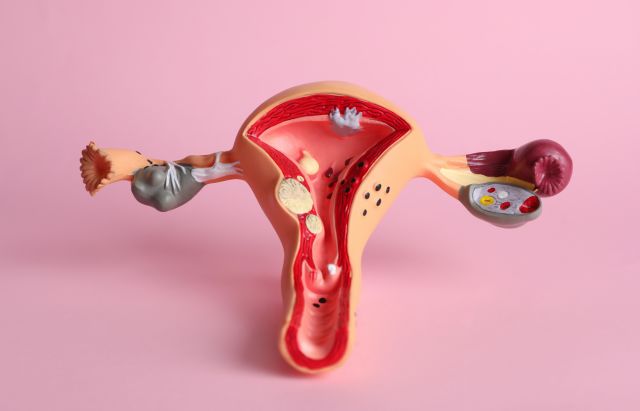Endometrial cancer is a type of cancer that begins in the uterus. More specifically, it is a type of cancer that begins in the endometrium, the layer of tissue that forms the inner lining of the uterus.
More than 66,000 people in the United States are diagnosed with a form of uterine cancer each year, and roughly 90 percent of those cases are endometrial cancer. This makes endometrial cancer the most common gynecologic cancer in the U.S.
What is endometrial cancer?
Like other forms of cancer, endometrial cancer begins with mutations to the DNA of normal cells. These mutations result in cells that divide and multiply uncontrollably, disrupting the normal function of organs, invading nearby tissues, and causing other problems. With endometrial cancers, these mutations occur in the cells that make up the endometrium.
What are the symptoms of endometrial cancer?
The most common symptom of endometrial cancer is abnormal or unexpected vaginal bleeding (especially after age 40 and/or after menopause). Lower abdominal pain, pelvic cramping, feeling a mass, and unexplained weight loss are other possible symptoms.
Symptoms like these should always be evaluated by a healthcare provider as soon as possible.
Is endometrial cancer caused by hormonal changes?
While the exact cause of endometrial cancer is not known, hormonal imbalances are known to play an important role in its development—specifically, an imbalance between the female sex hormones estrogen and progesterone.
Here is a simplified explanation:
- Estrogen stimulates the growth of endometrial tissue inside the uterus (among many other functions of the female reproductive system).
- Progesterone helps regulate estrogen levels. When there is too much estrogen without enough progesterone to balance it out, estrogen dominance can occur. This is also known as “unopposed estrogen.”
- The unopposed estrogen results in unregulated production of endometrial tissue. This is believed to create an environment where endometrial cancer is more likely to occur.
Again, the exact cause of endometrial cancer is not known, and there are still unanswered questions about why it occurs in some people and not others.
Estrogen dominance is also associated with breast cancer, uterine fibroids, endometriosis, polycystic ovarian syndrome (PCOS), and endometrial hyperplasia (a precancerous thickening of the endometrium).
What are the risk factors for endometrial cancer?
A risk factor is anything associated with an increased risk of developing cancer. Many of the risk factors associated with endometrial cancer are related to hormonal imbalances. Risk factors include:
- Age. The majority of cases are diagnosed in women between the ages of 45 and 74. However, endometrial cancers (as well as less common types of uterine cancers) occur in people across many different age groups.
- Age at menstruation and menopause. Beginning menstruation before the age of 12 and/or late-onset menopause (after age 55) increases the number of menstrual cycles in a person’s life. A higher number of menstrual cycles is associated with an increased risk of endometrial cancer.
- Obesity. Being overweight or obese put a person at a higher risk of having endometrial cancer. Excess body fat increases the levels of estrogen in the body, which can stimulate the growth of endometrium.
- Previous cancers and cancer treatments. Breast cancer, ovarian cancer, pelvic cancers that have been treated with radiation, and certain hormone therapies used to treat or prevent breast cancer are associated with an increased risk of endometrial cancer.
- Medical history. Including a history of PCOS, type 2 diabetes, hypertension, infertility, and endometrial hyperplasia.
- Family history. A family history of endometrial cancer, ovarian cancer, and/or colorectal cancer is a risk factor for endometrial cancer. This includes Lynch Syndrome, or hereditary nonpolyposis colorectal cancer (HNPCC), a genetic disorder that increases the risk of some types of cancers.
- Estrogen therapy. These are medications that contain estrogen without progesterone, which are sometimes used to treat menopausal symptoms. Estrogen-only therapies should only be used when the person taking the medication does not have a uterus (for example, if they have undergone a hysterectomy).
- Race. The risk of endometrial cancer varies by race and ethnicity. For example, the incidence of endometrial cancer is higher in Caucasian women, but Black women and Hispanic women are more likely to be diagnosed at younger ages and with more aggressive forms of cancer.
While it is helpful to know the risk factors for endometrial cancer, your best source of information about your health will always be your healthcare provider.






